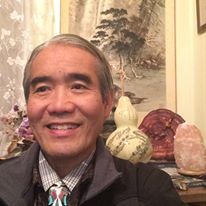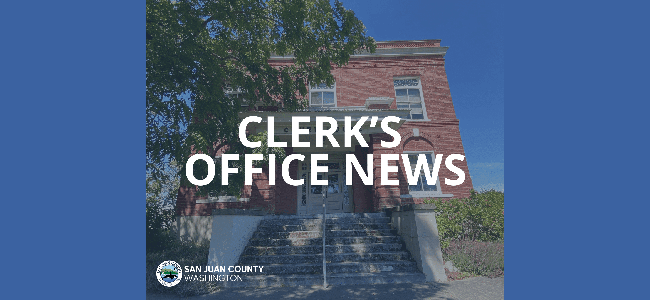— by Vincent Shu, MD —
Despite there have been heated discussions and negotiations in the recent months between OIHCD and UW Orcas Clinic specific to the need of after hours/urgent care, OIHCD commissioners have expressed frustration in this matter during the regular board meeting because this remains unresolved. I feel compelled to give my standpoint of view related to this issue.
Rationales
1. After Hours/Urgent Care model can help reduce 911 calls with resultant reduction of unnecessary air transfers:
1.1 In the past, most after hours/urgent care had been taken care by calling 911 for EMTs because of no after hours/urgent care available. Of note, there is a contrast between After Hours/Urgent Care and 911 calls. That is: 911 calls are under the care of EMT staffs and volunteers whereas after hours/urgent cares are under PCPs’ care.
1.2. I spoke to Chief Williams who told me that If Islanders call 911 for after hours/urgent care, then EMTs would assume the legal and jurisdiction over their care. They are abided by law to sending patients to the nearest hospitals ASAP where Board-Certified Emergency Room Physicians will then take over their cares from EMTs.
As Orcas Island does not have hospital emergency room, it poses a unique problem and issue. EMT staffs and volunteers who are incapable of accessing and have no knowledge of their medical records (such as previous EKGs and others) may find ambiguity and difficulty with insufficient data to elaborate specific to the nature of acute illnesses, thereby, there are very good chances of air-lifting off islands because EMTs are more concerned about potential liability risks incurred. This may have led to more unnecessary air transfers.
1.3. After Hours/Urgent Cares are under the care of their PCPs who have known them well. Unlike EMT staffs and volunteers, PCPs are credentialed as clinicians, educated and trained professionally in diagnosing and treating a variety of acute/chronic illnesses. With gathering all the clinical data, PCPs would be in better positions than EMTs to reassure patients about the clinical significance of their illnesses being more likely benign in nature ( if they are). Thereby, after hours/urgent care under the care of PCPs will be likely to reduce unnecessary air transfers.
1.4 As they are currently being offered diagnosis and receiving appropriate treatments under continuing medical care for their illnesses, a doctor-patient relationship and quality care measures will be improved if after hours/urgent care is available.
2. The approval of air ambulance faces growing scrutiny from authoritative organizations ( especially, insurance company) specific to the medical necessity of air-lifting.
20 air transfers in a given 2 months which have been denied by Kaiser, averaging 1 fly-off in every 3 days. This appears too excessive raising the question of among 20 air transfers, how many cases are deemed medically indicated unequivocally. This issue has been under heated debate, investigation and negotiation among OIHCD, Board of Health and San Juan Councilmen as well as Kaiser.
For the long term solution, it lies in how to limit the air transfer to those who are truly in need. Based upon the aforementioned discussion as stated in # 1.2 and 1.3, if PCPs can assume their active role in this matter, then, PCP-sponsored after hours/urgent care models would offer health care in a compassionate, caring environment as a hope for this solution, ultimately improving a doctor-patient relationship and quality care measures.
**If you are reading theOrcasonian for free, thank your fellow islanders. If you would like to support theOrcasonian CLICK HERE to set your modestly-priced, voluntary subscription. Otherwise, no worries; we’re happy to share with you.**








Urgent care was among the selling points in setting up the Orcas Island public hospital district, and one of the major reasons I voted for it. Let’s get on with establishing it, especially in light of Kaiser Permanente’s recent rejection of claims for reimbursement of “emergency” airlifts to mainland hospitals.
What Michael Riordan said: absolutely spot on.
People need to be able to see a doctor here on the islands when they get suddenly sick or get an infection that needs immediate treatment or have an injury that is not bad enough for an airlift but too nasty for them (us!) to feel comfortable waiting in the standby line for several hours to try to go off island for treatment. I voted to have my taxes raised because I thought that this was what the UW Clinic was, in part, offering.
I still hope that the huge amount of money we raised and spent will be able to make this happen.
OIHCD Commissioners: Thanks for trying & keep up the good work.
Yes, Dr. Shu, being treated on Island is sure a lot less stressful than being airlifted. It’s good when needed, but sometimes if help is available right here on Island, then why not?
after hours care Was supposed to be addressed and not left in Limbo.
It sure looks as if UW is not interested in working with the Orcas community…but is anyone surprised???? Sadly I believe the need for urgent and after hours care was paramount to many of us who voted YES. It doesn’t look good and we seem to be saying goodbye to our coverage for back-up air transport…